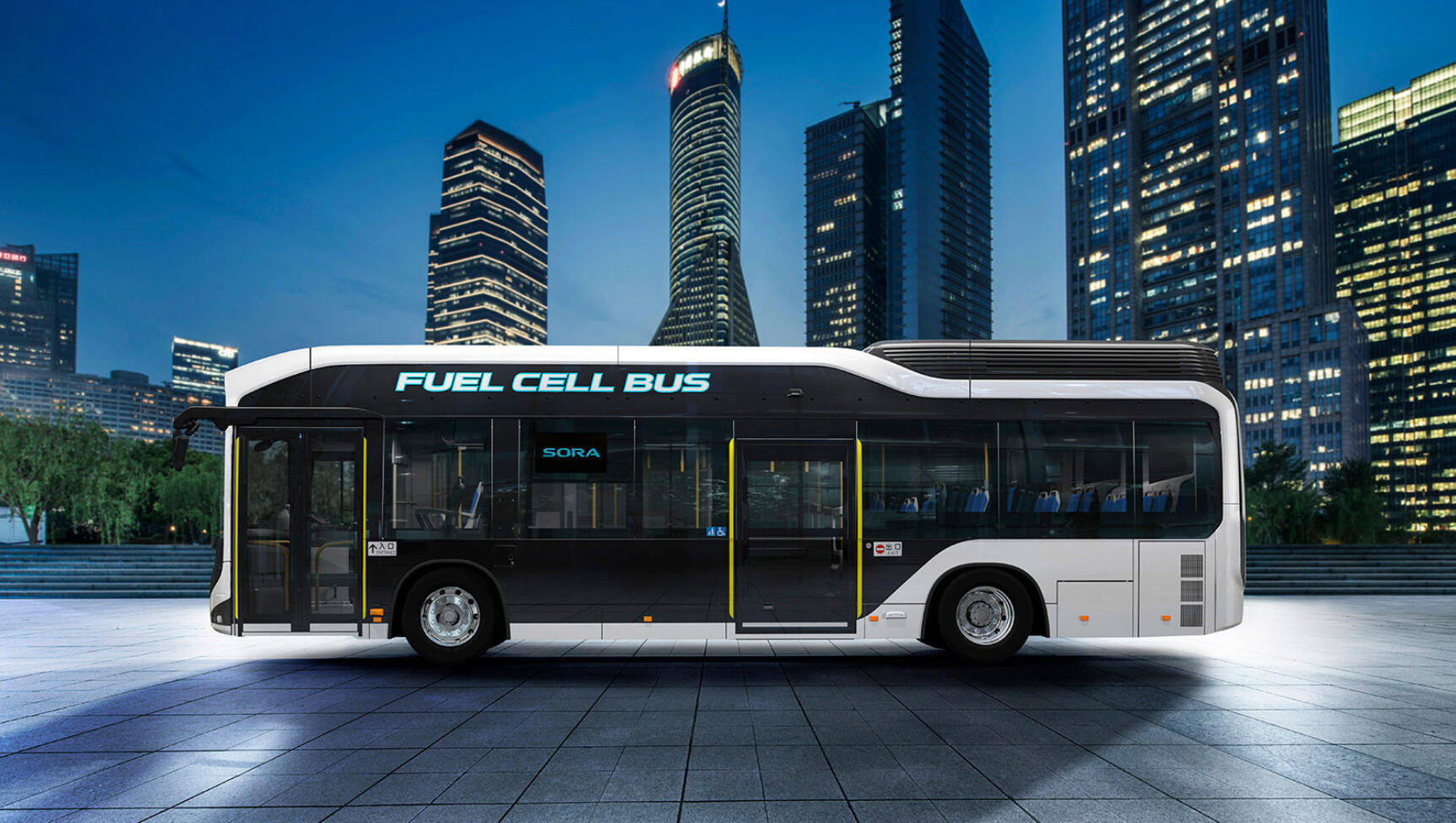

Toyota
Mission H2 and TeamNL give positive energy to the energy transition. Specifically, the aim of the mission is, together with the government and a large number of Dutch companies, to have realised a mini-chain by the summer of 2024, during the Olympic and Paralympic Games in Paris, leading to a fully functioning hydrogen market by 2030. Read more about the role and vision of Toyota below.
Toyota delivered the second-generation Mirai. Toyota's hydrogen electric passenger car. Already widely deployable today. Here, mobility is the driver of hydrogen as an energy carrier.
In addition, public transport is an important player in the green transition of the Netherlands. This is precisely why we as Toyota, together with our partner CaetanoBus, offer hydrogen electric city buses on the Dutch market. In addition, Toyota's fuel cell technology is being used much more widely. For example, together with EODev, we are already offering the hydrogen generator. Powered by Toyota. Power from hydrogen at locations where it is otherwise unavailable or insufficient. In Japan, with 'Woven City', Toyota is developing the city of the future equipped with a fully connected ecosystem based on hydrogen, or a 'hydrogen-based society'. We also see an important role for hydrogen in the Netherlands. We are proud to be part of Mission H2 together with other inspiring parties to make the rest of the Netherlands enthusiastic about this. The fact that we can do this together with NOC*NSF and others through sport is great.
Why hydrogen?
Hydrogen made with renewable energy is completely CO2-free. And if it is used to generate electricity, clean water is the only emission. Hydrogen is also easy to store and transport. This allows us to make the best use of renewable energy sources. Plus, hydrogen is literally everywhere, which also makes it an exciting source of energy. Electricity can be difficult to store and transport over long distances. But using electricity to extract hydrogen makes both storage and transportation easier. In this way, renewable energy - such as wind and solar power, which often depends on time and place - is used much more efficiently. Hydrogen is needed to get our new fossil-free energy system up and running.
Local production - benefits for the next generation
An important advantage of hydrogen is that it provides an energy infrastructure in which local production takes place. That also means jobs and new innovations. And hydrogen also means that our children are sure of the availability of energy - for generations to come.



